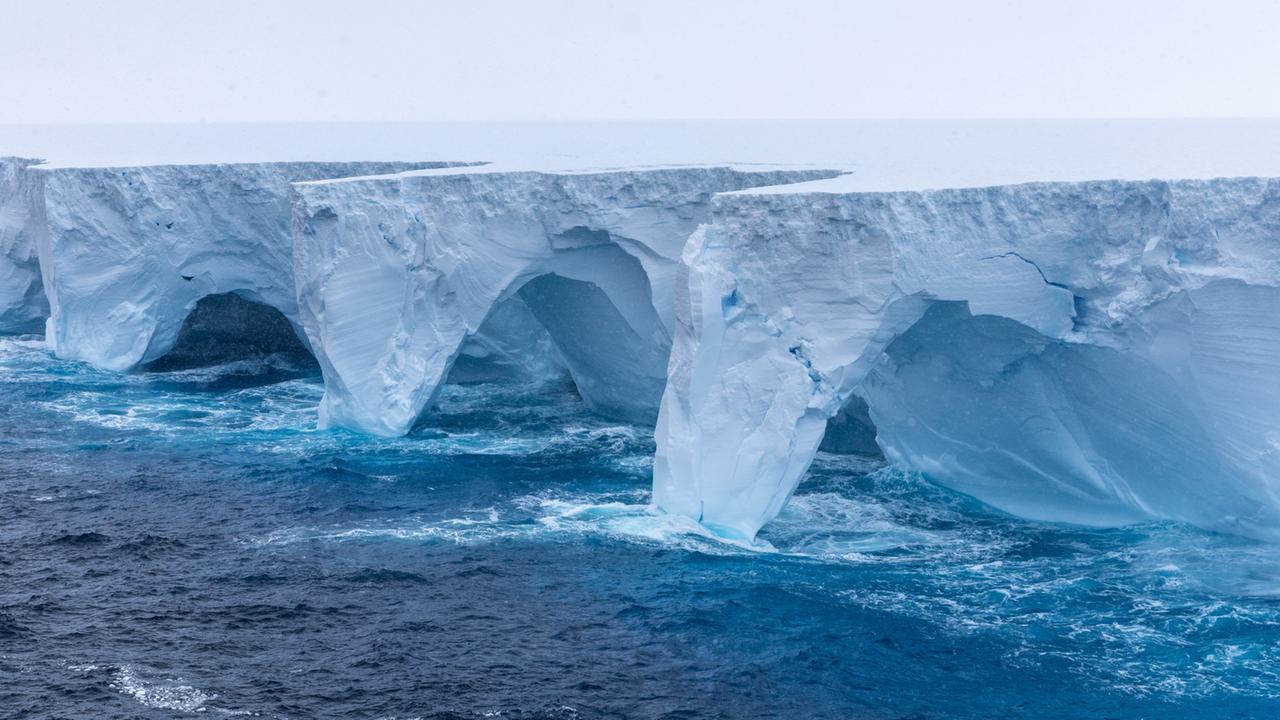For decades, A23a was trapped in Antarctica after breaking off from the Antarctic mainland. Now the iceberg is drifting north.
What is probably the largest iceberg in the world is heading north decades after it broke off from the Antarctic ice shelf. This was announced by the polar research institute British Antarctic Survey. A23a broke away from the Filchner-Ronne Ice Shelf in Antarctica in 1986, but remained attached to the seafloor for decades. After becoming detached in 2000, it remained trapped in circulating ocean currents. But now he has escaped, as can be seen on satellite images.
The iceberg is around 4,000 square kilometers in size, around 4.5 times the size of Berlin. Meanwhile, waves and weather have carved huge arches and cave-like depressions into the colossus, as footage from a ship owned by Eyos Expeditions showed.
A current satellite image of iceberg A23a from December 15, 2024.
Question about impacts on the local ecosystem
A23a is expected to move towards the island of South Georgia. There it will encounter warmer water, break into smaller icebergs and ultimately melt, the statement said. “We are curious to see whether it will follow the same path as other large icebergs that have broken off from the Antarctic ice shelf. More importantly, what impact will this have on the local ecosystem?” oceanographer Andrew Meijers was quoted as saying.




